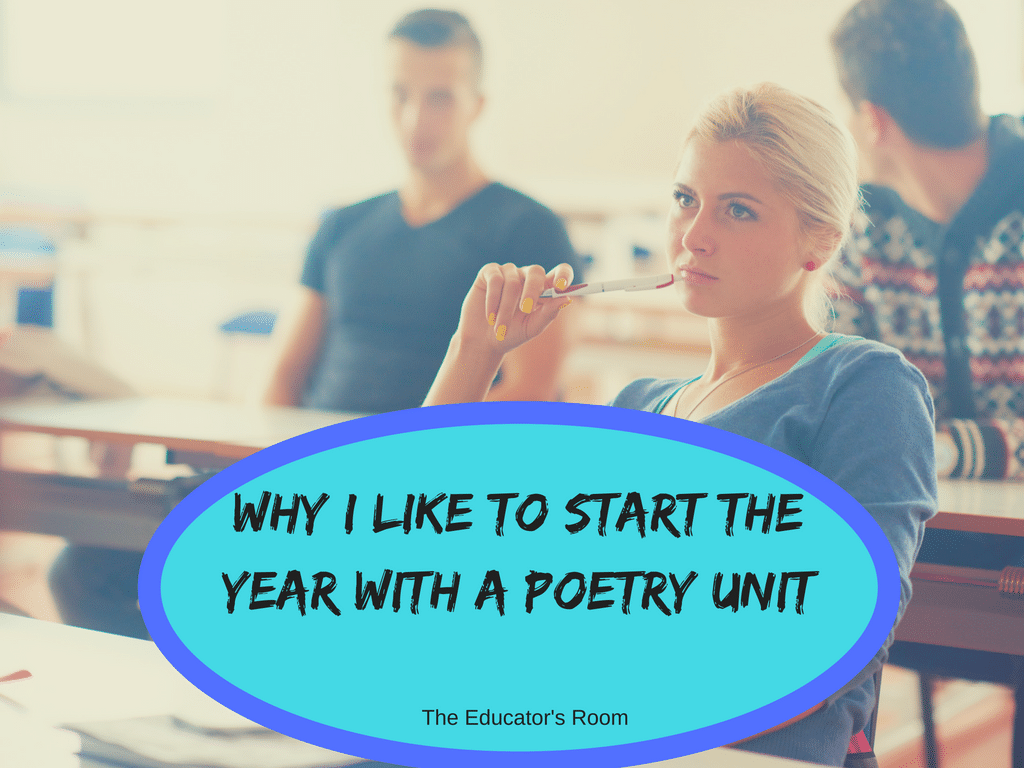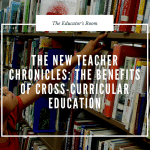Figuring out how to begin the school year can be intimidating. You’ll be setting the tone for the rest of the year, and you will never quite get the same amount of energy or hard work from your students as you do while the year is still fresh. (Ever notice that every single kid does his or her homework on the first day of school?) I’ve tried all sorts of things, from jumping into Shakespeare or a long novel to starting with a short story unit to starting off with a personal essay unit. And one of my favorite ways to begin the school year is with a poetry unit.
These are the reasons why:
It teaches students to look at all of the elements of literature, not just the plot.
From individual word choices to the way that the structure of the whole creates meaning, we can get at all of the literary elements. We’re not bogged down with the details of who’s who or what happened when. Instead, we can start analyzing and discussing and really unpacking—and we don’t have to worry about the plot.
We read in class so I get students who can’t or won’t do homework.
In the past, when I started off the school year with a book that was read mostly outside of class, there were always a few students who would slip through the cracks right away. Since they didn’t do the homework, they couldn’t participate in class, and often they would start acting up. And I wouldn’t learn what they were really capable of doing until much later in the year. But with poems, we read the whole text in class, so I get those students right away.
They write a paper without having to search through a long text to find good quotes.
Literary analysis is difficult enough without having to go back through a book to find quotes. When the first paper of the year is on a poem, that takes one more item off the list. We can then do our best to juggle everything else.
I get a second writing grade for the first quarter and get a good sense of what I’ll need to accomplish by the end of the year.
I am always a little desperate to get enough grades in that first quarter. Any summer assignments won’t really measure what students can do—I wasn’t there when they were assigned, and I didn’t take them through the process, so I likely won’t get the results that I am hoping for. But when I do a poetry paper, I can get a meaningful grade for the first quarter, and I can start planning early on what I’ll need to accomplish during the rest of the year.
We delve deep into some big ideas, right away.
What I love about poetry—okay, one thing I love—is that you can go deep really fast. Ten minutes of reading and annotating, and all of a sudden you are into a discussion about conformity and rebellion and how the women’s rights and the Abolitionist movement all relate. This kind of discussion can happen as early as the first day of school when it is based on a good poem.
I show them how much fun it is to analyze a poem, and they realize early on that their new teacher is a special kind of nerd. I can get so excited about the connotations of a single word that I am practically jumping up and down during a class discussion. I am a special kind of nerd, and the earlier my students know what they are dealing with, the better!






